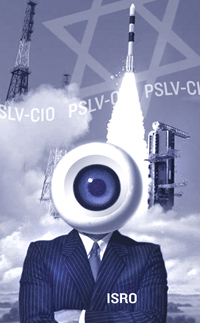INDIAN ARMED FORCES CHIEFS ON OUR RELENTLESS AND FOCUSED PUBLISHING EFFORTS

SP Guide Publications puts forth a well compiled articulation of issues, pursuits and accomplishments of the Indian Army, over the years

"Over the past 60 years, the growth of SP Guide Publications has mirrored the rising stature of Indian Navy. Its well-researched and informative magazines on Defence and Aerospace sector have served to shape an educated opinion of our military personnel, policy makers and the public alike. I wish SP's Publication team continued success, fair winds and following seas in all future endeavour!"

Since, its inception in 1964, SP Guide Publications has consistently demonstrated commitment to high-quality journalism in the aerospace and defence sectors, earning a well-deserved reputation as Asia's largest media house in this domain. I wish SP Guide Publications continued success in its pursuit of excellence.
Another feather in ISRO’s cap

NEWS
On January 21, the Indian Space Research Organisation (ISRO) launched an Israeli spy satellite aboard the Polar Satellite Launch Vehicle (PSLV-C10). The launch, from the Sriharikota test site in southeast India, marked the seventh successful orbital insertion for the four-stage PSLV and the first cooperative satellite launch between Israel and its principal export customer. According to state-owned Israel Aerospace Industries Ltd (IAI), the country’s sole satellite producing firm, the first signals from the Synthetic Aperture Radar (SAR) equipped spacecraft reached the operational ground control station near IAI headquarters some 80 minutes after launch. By all indications, so far the satellite is functioning properly, IAI announced.
VIEWS
TecSar, the 300 kg advanced Israeli satellite, has been designed and manufactured by MBT Space, a division of IAI. TecSar is equipped with Synthetic Aperture Radar, which is a quantum leap in technology over the preceding camera carrying Ofeq series of satellites. It is reported to be one of the most sophisticated imaging systems in the world with the capability to provide wide area coverage through electronic beam steering and resolution of 10 cm (quite incredible!) both by day and night, regardless of weather or visibility conditions. As reported, the satellite even has limited look-through capability.
Israel has thus far independently launched 11 satellites, including some for espionage, and has a fairly well developed launch vehicle, Shavit. However, on account of technical limitations of the Shavit vis-à-vis the type of trajectory required for a low earth orbit and certain operational/strategic considerations related to launch from the Middle East region, Israel opted for collaboration with India. While ISRO would like to project the exercise as purely a commercial venture, even the limited information on the capabilities of the TecSar, the shroud of secrecy associated with the launch and the fact that the primary customers would be intelligence agencies and the Ministry of Defence of Israel, leave little room for doubt about the character, intent and purpose of the satellite.





